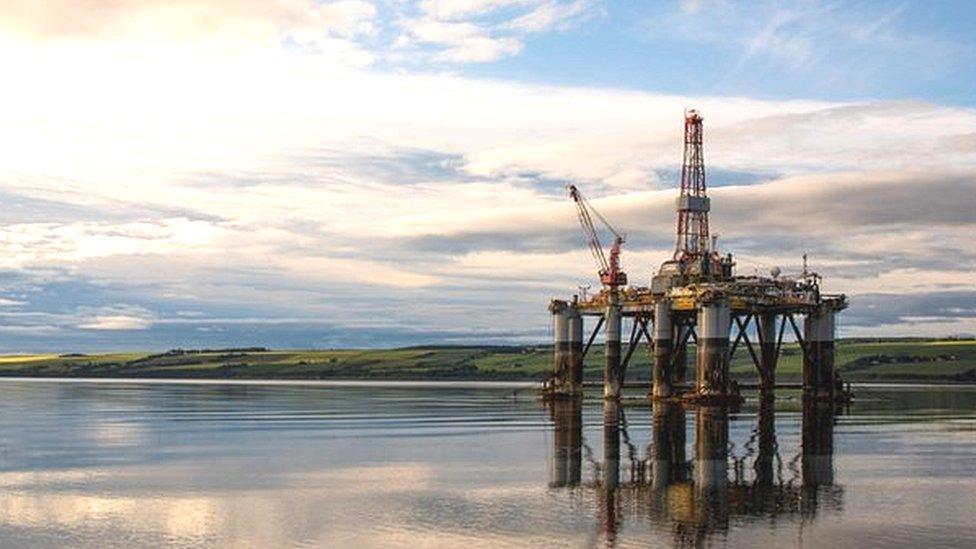Liz Truss defends energy firms saying profit is not evil
- Published
- comments
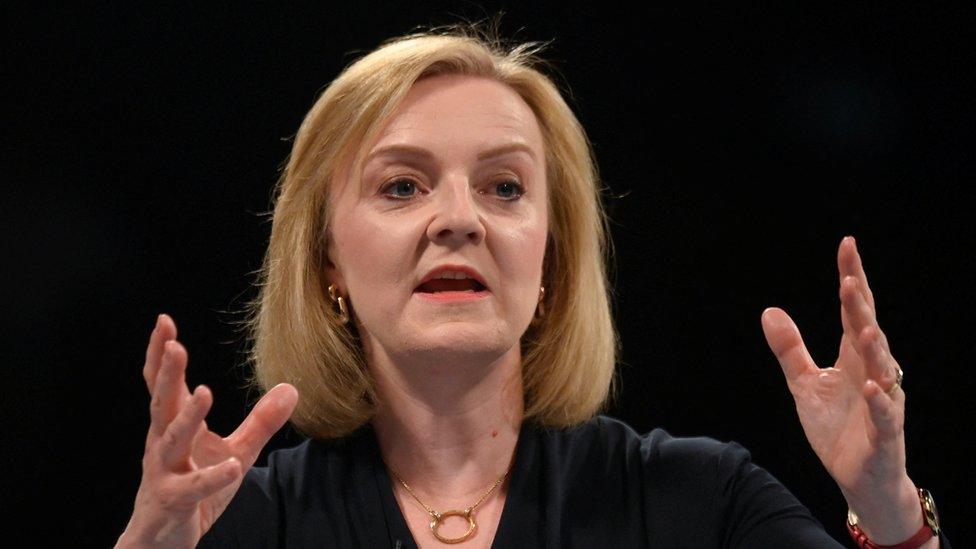
Liz Truss has defended earnings at energy companies amid soaring price rises, saying profits should not be considered "dirty and evil".
The Tory leadership hopeful said windfall taxes on profits - urged by some to fund help for households - were about "bashing business".
She said cutting taxes was the best way to help with living costs over winter.
But rival Rishi Sunak said millions would be left at risk of destitution without more energy payments.
He has proposed spending billions of pounds on further payments to pensioners and the low paid over winter, arguing tax cuts won't help them enough.
Mr Sunak has also written in The Times, external to confirm he would be willing to borrow to fund these costs as a "last resort", if they could not be found through "savings across Whitehall" or cuts to government spending.
Meanwhile Chancellor Nadhim Zahawi has said new cost-of-living policies will be "ready to go" when the new prime minister takes office on 5 September.
Speaking on a visit to the Airbus factory in Broughton in north Wales, Mr Zahawi told broadcasters: "We're looking at all the options of what additional help we need to bring in later on in the winter months."
The BBC has been told one option could include expanding the windfall tax on energy companies.
The current windfall tax - also called the energy profits levy - applies only to oil and gas firms, but there has been speculation about extending it to electricity generators.
How best to respond to surging energy prices has become a key battleground in the contest to replace Boris Johnson as prime minister.
Energy has come to dominate the contest in recent days, after prices were forecast to rise to more than £4,000 per year next year for typical households.
Energy companies have posted bumper profits in recent months amid soaring gas and oil prices, prompting calls to tax them further to help with rising bills.
Earlier this month, BP reported its biggest quarterly profit in 14 years - $8.45bn (£6.9bn) - while Shell posted a record profit of $11.5bn (£9bn).
When he was chancellor, Mr Sunak introduced a 25% windfall tax to the profits of the oil and gas sector since the end of May.
But speaking at a hustings in Cheltenham, Ms Truss said she "absolutely" did not support windfall taxes, calling it a "Labour idea".
"It's all about bashing business and it sends the wrong message to international investors and to the public," the foreign secretary added.
A windfall tax is a one-off charge imposed by a government on a company, designed to target firms that have benefited from circumstances they were not responsible for.
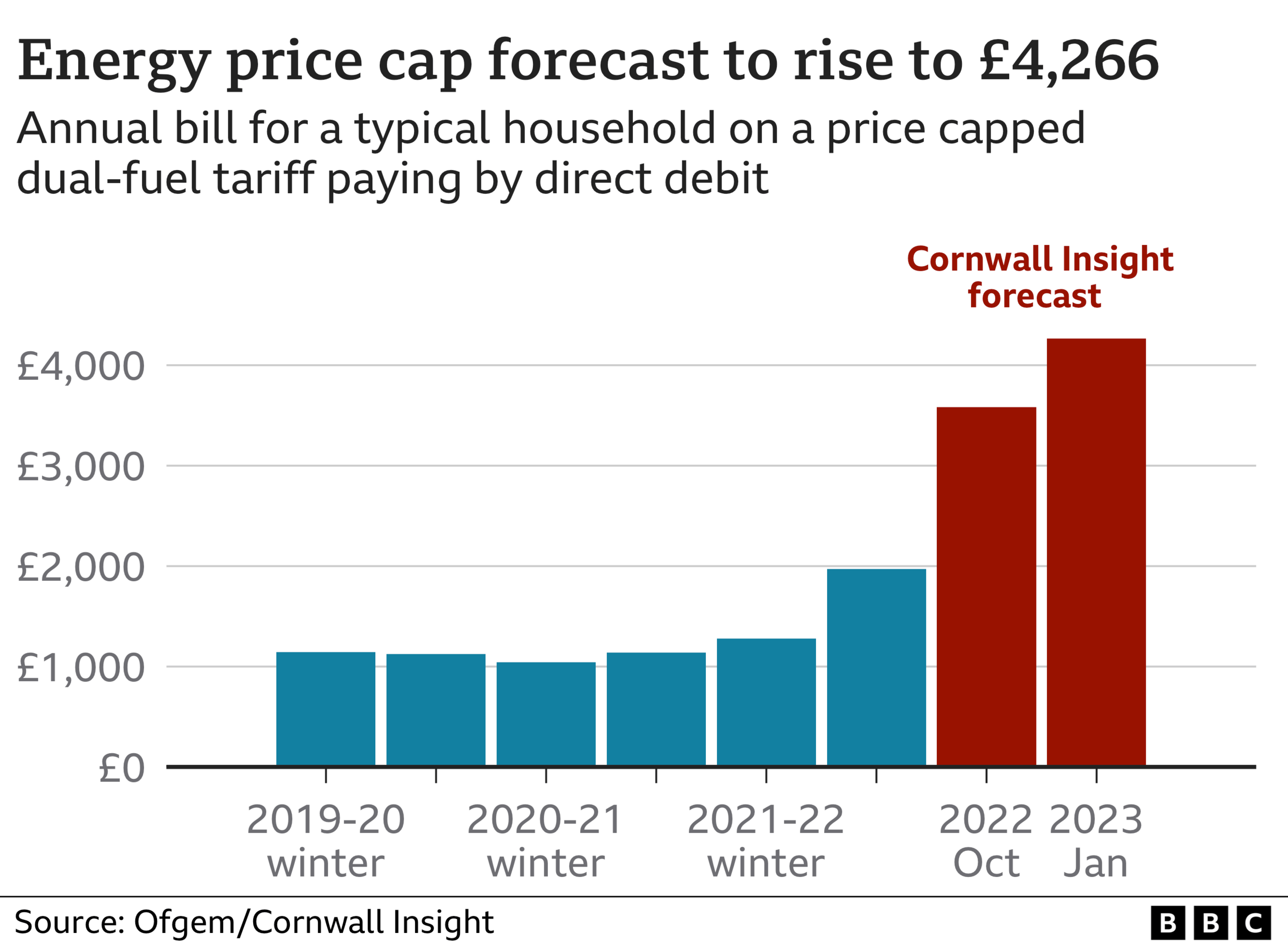

Asked about public perceptions of record profits, she added: "I don't think profit is a dirty word, and the fact it's become a dirty word in our society is a massive problem.
"Now, of course, the energy giants, if they're in an oligopoly, should be held to account, and I would make sure they're rigorously held to account.
"But the way we bandy the word around 'profit' (as if) it's something that's dirty and evil, we shouldn't be doing that as Conservatives."
Labour has called for the windfall tax to be backdated a further three months to January, arguing it would raise an extra £1.9bn for energy support schemes.
The party has suggested it could fund its plan for prepay energy customers to be charged the same as those paying by direct debit.
It says the higher price cap for prepaid gas and electricity could mean 4.5m households paying £184 more than those who pay by direct debit between this October and next March.
Labour has said it would align the caps for the two payment methods to stop those on prepayment meters paying "over the odds".
The party has billed the announcement as the first stage of a winter energy plan it is expected to unveil in the coming days.
The Liberal Democrats have also called for the windfall tax to be extended, to pay for their plan to scrap October's expected energy price cap rise.
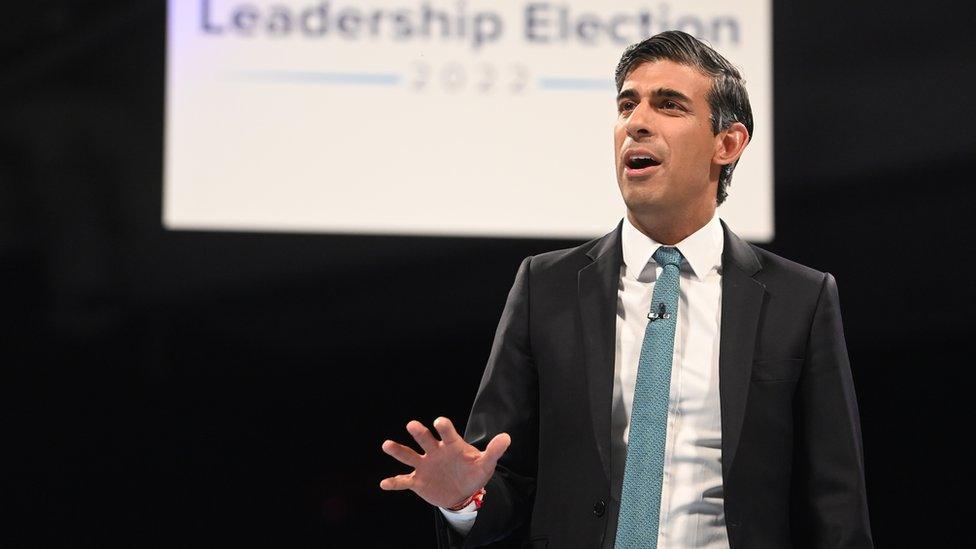
Rishi Sunak says more direct energy payments are needed over the winter
Ms Truss's comments come amid increasingly bitter exchanges between the leadership rivals over their respective plans to help people over the winter.
The foreign secretary has said her plan to reverse National Insurance rises and scrapping green energy bills will help families and boost the economy.
But also speaking at the Cheltenham hustings, Mr Sunak said tax cuts would "leave millions of incredibly vulnerable people at risk of destitution".
He added that pensioners "don't have the ability to go out and work more hours" and were "already dipping into their savings in retirement".
"If we don't provide direct support to millions of vulnerable pensioners, it will be a moral failure of this party and the country will never ever forgive us."
He has pledged to make extra payments to vulnerable groups this winter, on top of the £15bn package of payments he announced as chancellor in May.
Mr Sunak has said he is prepared to borrow to fund his plan, but this can be kept to a minimum through "efficiency savings" across government.
Writing in The Times, he said the cost looked to be in "the low to middle billions", adding: "But I'm realistic. It could be more."
He said this may mean having make "tough choices" to "stop or pause some things in government", as supporting people in the coming months "has to be the first priority".
Mr Sunak said: "But I will also be honest. If it requires some limited and temporary, one-off borrowing as a last resort to get us through this winter, I'm prepared to do that."
Elsewhere in the debate:
Liz Truss said she wanted to see more fracking where supported by local communities, and labelled solar panels on agricultural land "depressing"
She also ruled out holding a general election before 2024, and said she would review how water regulators operate if she enters No 10
Rishi Sunak said he has messaged and called Boris Johnson since quitting his cabinet, but "unsurprisingly he hasn't returned my calls"
He also said he was "very nervous" about his rival's plan to change the remit of the Bank of England
Related topics
- Published2 August 2022

- Published5 May 2022
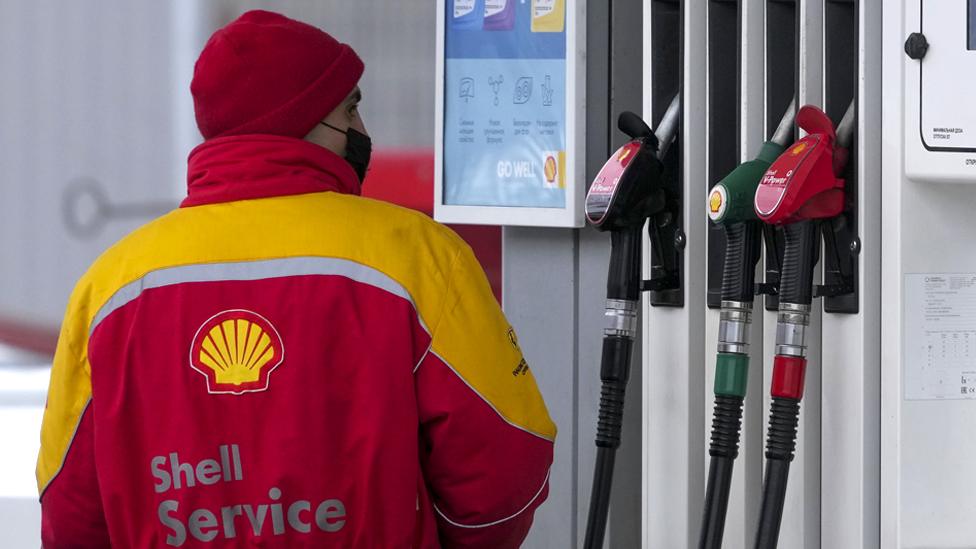
- Published22 October 2024
